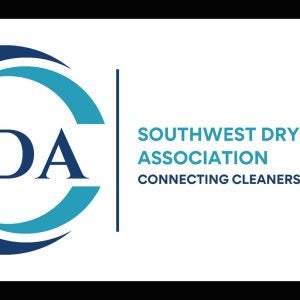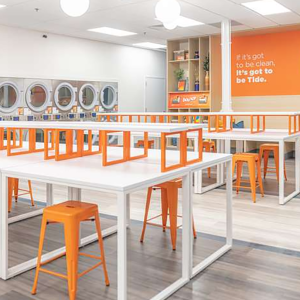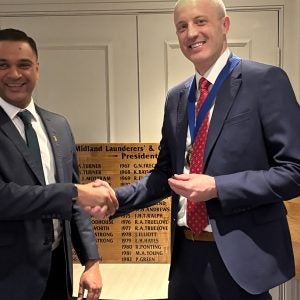UK
At the TSA spring conference at St George’s Park, the England football training ground, TSA CEO David Stevens (3-4 May) addressed delegates, saying what a great opportunity the conference is for launderers and suppliers to network and welcomed new members to the Association, including NHS Scotland and new suppliers, too. It was also a good time to pass along some good news.
Stevens reminded delegates of the work of the Hospitality Round Table group saying that TSA now meets twice a year with most of the major hotel groups and hospitality laundries. “We try to discuss the big issues, laundry capability, Cost Index, new build, but almost surprisingly a direct output of the last meeting was a commitment to try to remove single use plastic within the next two years. That’s 100 tonnes of plastic a week,” he said.
“Two additional work streams for the group are:
Valuing linen – “Where we looking at training material to support staff in both laundries and hospitality businesses to nurture the linen better so we can try to get the maximum life from the millions of pieces we have in circulation
Sustainability – “Which is looking at the more technical outputs around accounting for our scope 1,2 and most importantly 3 – the hotels are also very keen on this scope as it helps them achieve their own sustainability targets. Interestingly the Government is also keen on it for the same reasons.”
With regard to valuing linen TSA is producing a short video to inform hotels of the life of a pillow case. “We have named the pillowcase Pasha to try to engage the audience with the journey which starts from growing the cotton in the fields through spinning, weaving, manufacturing, shipping, delivery and then the ongoing laundry cycle. One pillowcase does have an epic journey…
“We are also producing additional training material aimed at the management and head housekeeper teams to again give them a better understanding of what we do and how we can work together within a win-win environment. This will also include marketing material aimed at directly at housekeeping staff.
“We are also producing a safe delivery guidance document aimed at hotels and hospitality venues. Where we very much try to create a partnership but carefully moving the responsibility of a safe delivery to the venues.
“What I love about so much of this work is that it all interlinks. Looking after the linen is great commercially for us but is even better for the environment, and will improve service because we have more stock. So, linen suppliers, don’t panic.”
Care Home Survey
According to Stevens, there has been a massive response to the TSA survey on care home laundry with 1,000 responses plus user groups. “Basically, the survey confirms it’s a massive market which needs technical support and has a very wide range of understanding of infection control within the laundry environment from great to very little. There is also a definite need for improve knowledge sharing to enable more informed decisions when it comes to laundry.
“However, it is good news that almost half of the large care home groups would outsource laundry if they are building a new care home.
The final bombshell on care homes, reported Srevens, is “the Quality Care Commission (CQC) don’t really inspect laundry”. Shock and horror all round.
DMU research
De Montfort University research undertaken by Pofessor Katie Laird and her team about to be peer reviewed and published after some briefing with other technical bodies. “It is a massive and ongoing research project that will start to look at future hurdles around bio films, spores, and other pathogens. Last week we presented the research to the national associations with America, Australia as well as most of the Europeans attending. It really is amazing research,” said Stevens.
“We have our AGM in July at our next board meeting but we continue to trade positively and have been able to maintain subscriptions at pre-Czovid rates, this is mainly because we have been able to steadily grow membership with virtually no losses except where we have kicked members out for non-payment or they went bust, which actually is incredibly few. We are a very resilient industry. However, we do expect to see ongoing rationalisation which does not always help our subscription pot,” said Stevens regretfully.
Cutting plastic use
Stevens said that cutting plastic use is a big project being undertaken by the Association alongside UK Hospitality (UKH) and could save over 300,000 tonnes of carbon. Currently, single use plastic wrapping is used by laundries when transporting clean bedroom linen back to hotels. This generates about 100 tonnes of plastic a week, which is equivalent to 300 tonnes of carbon throughout its lifecycle. As only 9% of plastic waste is currently recycled, removing this from the bedroom linen laundry chain would be a significant contribution towards increasing the sustainability of both laundry and hospitality industries.
Fifty-lthree million pieces of linen are processed by commercial laundries a week which gives them a remarkable insight into sustainability.” The Government is keen to learn from us as it needs to get to Net Zero in our sector,” said Stevens.






